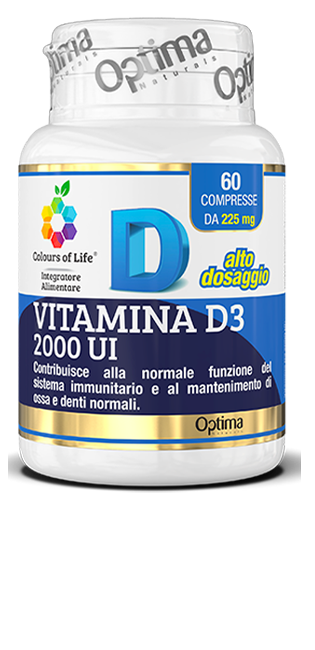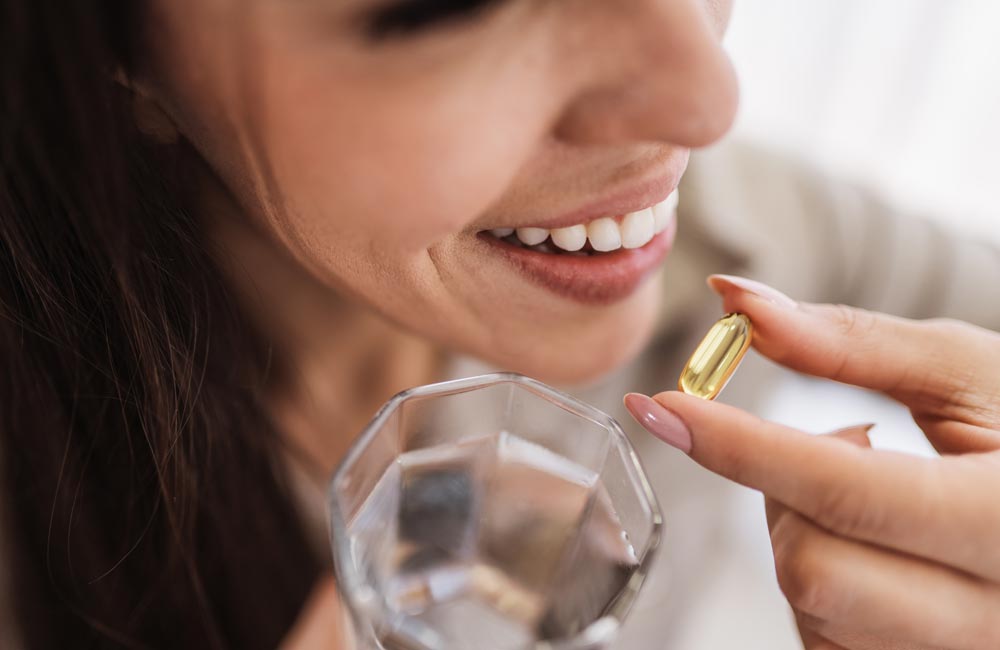BLOG
How to protect bones and teeth with vitamin D3

Our bones need minerals and vitamins to stay strong and compact. More specifically, to maintain bone density, the body requires an adequate supply of calcium and other minerals, and must produce various hormones in the right quantities.
In order to absorb calcium from food and deposit it in the bones and teeth, an adequate supply of vitamin D is required, which must be absorbed from food and produced by the skin through sunlight. If this vitamin is deficient, supplementation may be necessary.
What is Vitamin D3
The term vitamin D refers to a group of molecules found mainly in the form of ergocalciferol - vitamin D2 - and cholecalciferol - vitamin D3. Vitamin D3 belongs to the category of fat-soluble vitamins. Because it is produced by the body through its interaction with the sun's UVB rays, it is also called the 'sunshine vitamin'. It can be called a pre-hormone as it regulates the metabolism of calcium and phosphorus.
Vitamin D3 is very important for the health of the body, and as we absorb little sunlight due to a sedentary lifestyle and the use of sunscreen, it is often necessary to supplement it.
The importance of vitamin D3 for healthy bones and teeth
The health of bones and teeth is closely related to vitamin D3: it contributes to the metabolism of calcium, the mineral essential for their formation.
To check for a deficiency of this important vitamin and the possible need for supplementation, a blood test is sufficient.
A deficiency of vitamin D3 can lead to rickets in children and osteoporosis or osteomalacia in adults. In addition to its bone health benefits, it helps prevent weakening of the teeth, tooth decay and gum inflammation.
Also helps the immune system
Other important functions of vitamin D3 are to combat viruses and bacteria and to strengthen the immune system.
Helpful actions to avoid vitamin D3 deficiency
Lifestyle
Today's lifestyle, especially for those who work indoors, prevents exposure to sunlight and vitamin D production. It is important to spend more time in the open air in your free time, whether it is during breaks in the day or at the weekend, and expose yourself to sunlight.
Diet
Among foods, the main sources of vitamin D3 are: cod liver oil, trout, salmon, sardines and then eggs, milk, cheese and beef liver.
Food supplements
When diet is not an option and the lifestyle does not allow frequent exposure to the sun, the doctor may consider it necessary to take a food supplement.
Sources and insights
PubMed, Vitamin D in foods: development of the US Department of Agriculture database
PubMed, Vitamin D and the immune system
The advice is for information only and should not replace medical assistance. Please consult a doctor or health care professional before trying any remedies.
VITAMIN D3 2000 I.U.









 Optima Naturals S.r.l. ® Via Sempione 124, 21029 Vergiate (VA)
Optima Naturals S.r.l. ® Via Sempione 124, 21029 Vergiate (VA)